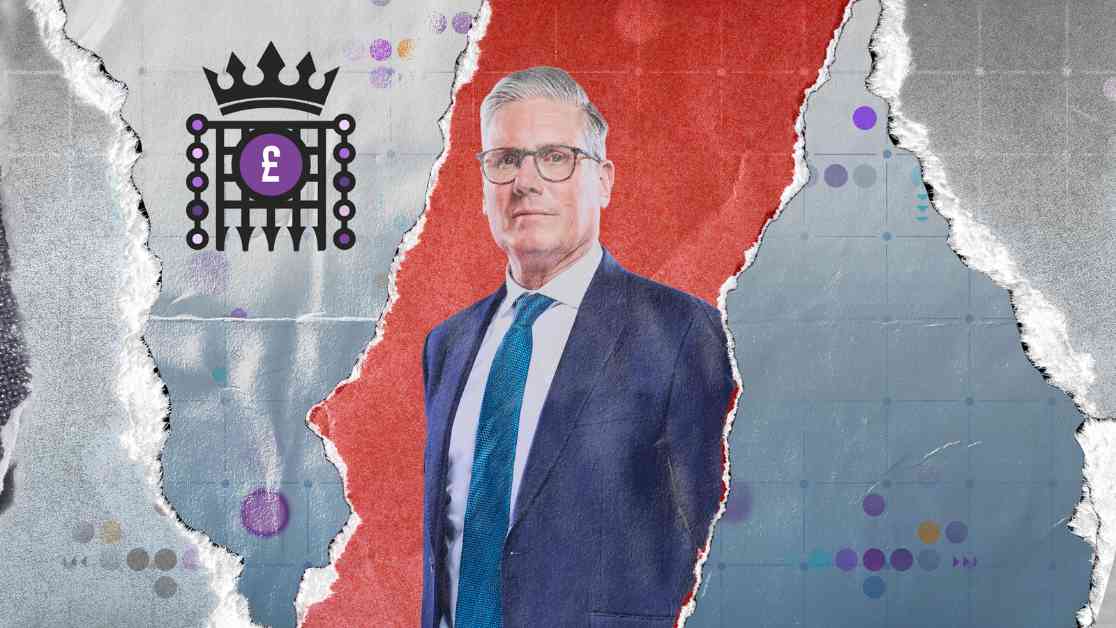Sir Keir Starmer, the Labour leader, has found himself at the center of controversy as it has been revealed that he has received a substantial amount of gifts and freebies exceeding £100,000 since becoming the party’s head. According to a report by Sky News, Sir Keir has accepted a staggering £107,145 in gifts, benefits, and hospitality since December 2019, making him the top recipient among MPs. This revelation has raised concerns among government officials about the potential conflict of interest that may arise from the prime minister’s acceptance of these gifts, especially in light of proposed changes to the regulation of the sports industry, which many clubs are opposed to.
The issue of freebies and hospitality has come to the forefront as it has been disclosed that Sir Keir has received more than two-and-a-half times the amount of gifts and hospitality compared to the next MP on the list. This information was compiled as part of Sky News’ Westminster Accounts project, which aims to track the flow of money through the political system. While Sir Keir’s acceptance of gifts is within the parliamentary rules, some government members have expressed concerns about the ethical implications of receiving such lavish hospitality.
One particular area of concern is Sir Keir’s acceptance of football tickets, which has raised questions about potential lobbying and conflicts of interest. The Premier League, a major donor of hospitality, has provided Sir Keir with tickets to various matches, including Taylor Swift concerts and Arsenal games. With the future of football regulation under consideration, officials are wary of the prime minister’s continued acceptance of such gifts, as it may compromise his ability to make unbiased decisions on the matter.
Despite the criticism and calls for transparency, Sir Keir has defended his right to accept hospitality, citing the importance of being able to attend events such as football matches. He has emphasized the need for balance between enjoying personal interests and maintaining ethical standards in public office. However, some within the government have labeled the situation as “nuts” and have called for a ban on such gifts to avoid any potential conflicts of interest.
The issue of gifts and hospitality extends beyond Sir Keir’s personal interests, as it has also shed light on the practices of his chief of staff, Sue Gray. The revelation that Ms. Gray receives a salary higher than the prime minister has sparked further controversy and criticism. Despite the government’s defense of her salary level, questions have been raised about the decision-making process behind such high compensation for a chief of staff.
In light of these developments, it is clear that the issue of gifts and hospitality in politics is a complex and contentious one. While it is important for MPs to engage with various stakeholders and attend events that may further their understanding of different industries, there is a fine line between ethical behavior and potential conflicts of interest. As the debate continues, it remains to be seen how Sir Keir and his team will address the concerns raised by these revelations.
Implications of Excessive Gifts and Freebies
The revelation that Sir Keir Starmer has received over £100,000 in gifts and hospitality raises serious questions about the influence of such generosity on political decision-making. While it is common for MPs to receive gifts and benefits as part of their role, the sheer scale of Sir Keir’s acceptance of freebies has raised eyebrows among government officials and the public alike. The concern is not only about the value of the gifts themselves but also about the potential conflicts of interest that may arise from such a close relationship with donors.
Ethical Considerations in Political Gift-Giving
The issue of ethics in political gift-giving is a complex and nuanced one. While it is important for MPs to engage with various stakeholders and attend events that may further their understanding of different industries, there is a fine line between legitimate hospitality and inappropriate influence. The concern is not only about the personal benefits that MPs receive but also about the potential impact on their decision-making and policy positions. As the public becomes increasingly skeptical of the ties between politicians and donors, it is essential for MPs to uphold the highest ethical standards in their interactions with external parties.
The Role of Transparency and Accountability
Transparency and accountability are crucial aspects of maintaining public trust in the political system. The revelation of Sir Keir Starmer’s acceptance of excessive gifts and freebies highlights the need for greater transparency in the reporting of MPs’ interests. By disclosing all gifts and benefits received, MPs can demonstrate their commitment to openness and honesty in their dealings with external parties. Additionally, accountability mechanisms should be in place to ensure that MPs adhere to the rules and regulations governing gift-giving and hospitality, thereby preventing any potential conflicts of interest from arising.
In conclusion, the issue of gifts and freebies in politics is a contentious one that requires careful consideration and scrutiny. While it is important for MPs to engage with various stakeholders and attend events that may further their understanding of different industries, it is essential for them to uphold the highest ethical standards in their interactions. By promoting transparency, accountability, and ethical behavior, MPs can build public trust and confidence in the integrity of the political system.













